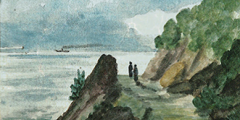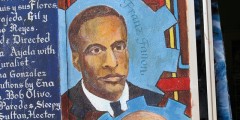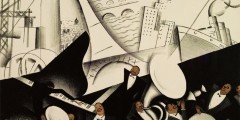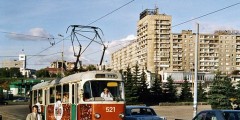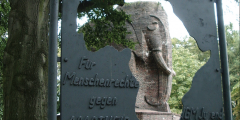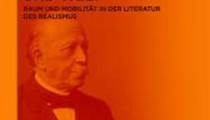Widening participation in CLAS: summer schools and beyond
13/09/2013
As the summer draws to a close and an autumnal chill hints at shorter days, a group of young people from all over the UK will be settling down to their final year of A level study with a renewed vigour and an eye on their future at a University. These young people were lucky …
Rethinking the relationship between Realism and Romanticism in the nineteenth century
02/09/2013
Romanticism and Realism are arguably the two most prominent nineteenth-century movements in European literature and art, typically conceived as mutually exclusive and somehow reflecting the philosophical conflict of idealism and realism that runs through the history of modern European culture, or indeed is seen as universal. Nineteenth-century European literary history is seen as a shifting …
Germania remembered
16/08/2013
A new book, Germania Remembered 1500–2009. Commemorating and Inventing a Germanic Past, co-edited by Dr Nicola McLelland (German) and Dr Christina Lee (English), and with a foreword by Tom Shippey, examines how German, English and Scandinavian scholars, writers and artists have invoked the remote history of Germany in order to bolster their ideas about what it …
Gibraltar: More than ‘Britain in the Sun’
12/08/2013
On the back of successful viewing figures, Channel 5 has lost little time in commissioning a second series of its fly-on-the-wall documentary ‘Gibraltar: Britain in the Sun‘. Notwithstanding the personal trials and tribulations of the individuals featured in the programme, the overall picture presented of Gibraltar is overwhelmingly positive. Glossy production values, quick edits, overlapping …
The Mysterious Constance Farrington
06/08/2013
When people talk about translations, they usually do one of two things: either, they treat the translation as if it wasn’t a translation, talking about it as if it were a carbon copy of the original, or else they criticise the translation, bemoaning what is ‘lost’. This has certainly been the case for Constance Farrington’s …
Jazz in France
26/07/2013
In a poem written in the 1930s, Léopold Sédar Senghor, a black student from French West Africa, soon to be recognised as a founding father of the négritude movement, recounts strolling down the Rue Fontaine in Paris, past the open door of the Cabane cubaine, an early jazz club. As the sounds of jazz spill …
More Windows on Russia and Eastern Europe
18/07/2013
In our latest sneak peek of the forthcoming book ‘Windows on Russia and Eastern Europe’, written by Nottingham alumni, we hear from Daniel Vowles, who worked in the Soviet Union at the fall of the Berlin Wall. Doing business was chaotic to say the least… My next “dream” posting was to Kaliningrad. I have to admit …
German literature rediscovers Germany’s neglected colonial history
15/07/2013
In the late 1990s, a surge of historical novels about German colonialism in Africa and its previously neglected legacies hit the German literary scene. Accelerated by the centenary in 2004 of Germany’s colonial war in South-West Africa and the genocide of the Herero, this development has continued to the present, making colonialism an established theme …
Nineteenth-century German literature reflects globalisation and modernisation
25/06/2013
The literature of German Realism, written between c. 1840 and 1900, has often traditionally been seen as a turn against modernisation, a retreat into German provincialism and hence a deviation from the European literary trajectory from Romanticism to Modernism. International scholarship in German literary studies since the later 1990s has challenged this idea, and research into …
Windows on War: An Online Poster Exhibition
19/06/2013
In 1969 as part of the legacy of Vivian de Sola Pinto (formerly Professor of English) the University acquired a rare collection of Soviet posters from WWII. These posters were hand-made almost every day during the war to keep the population abreast of progress, to maintain morale and attack the enemy. Yes, they are propaganda, …


